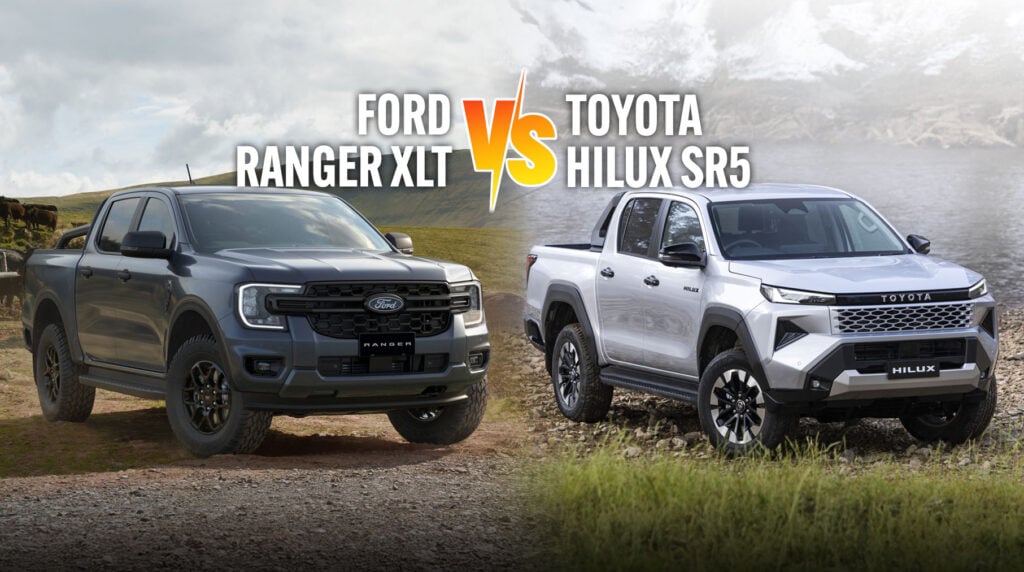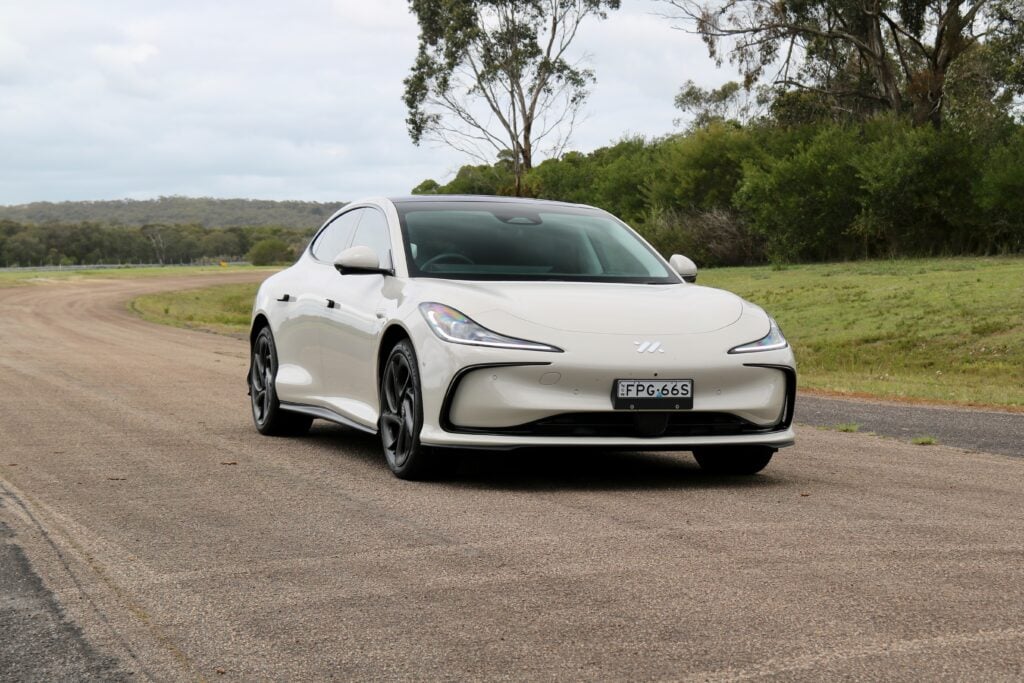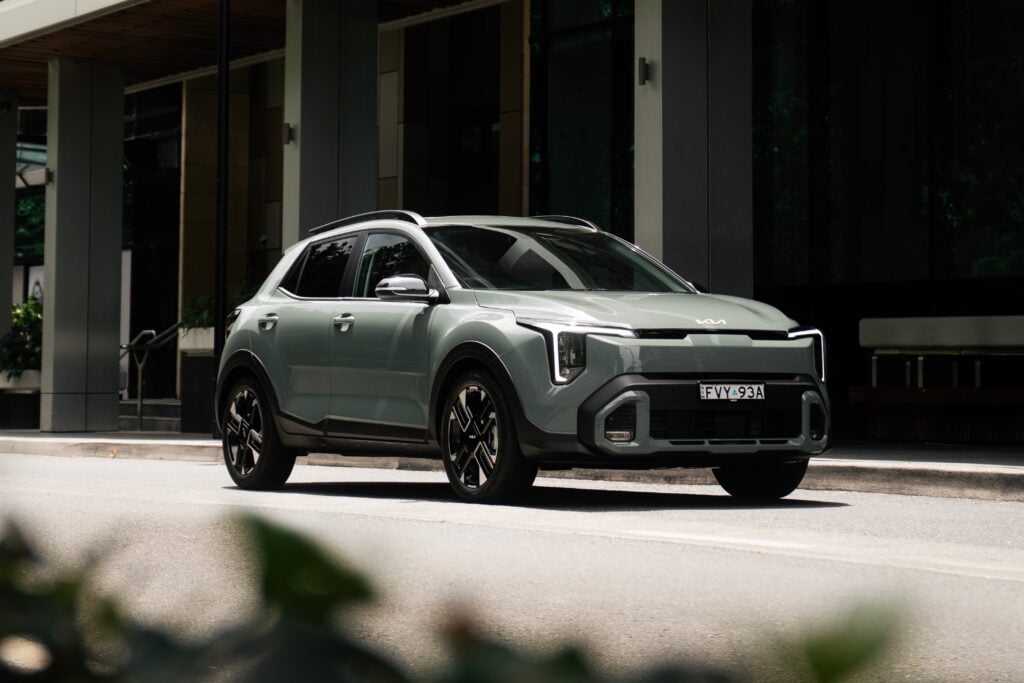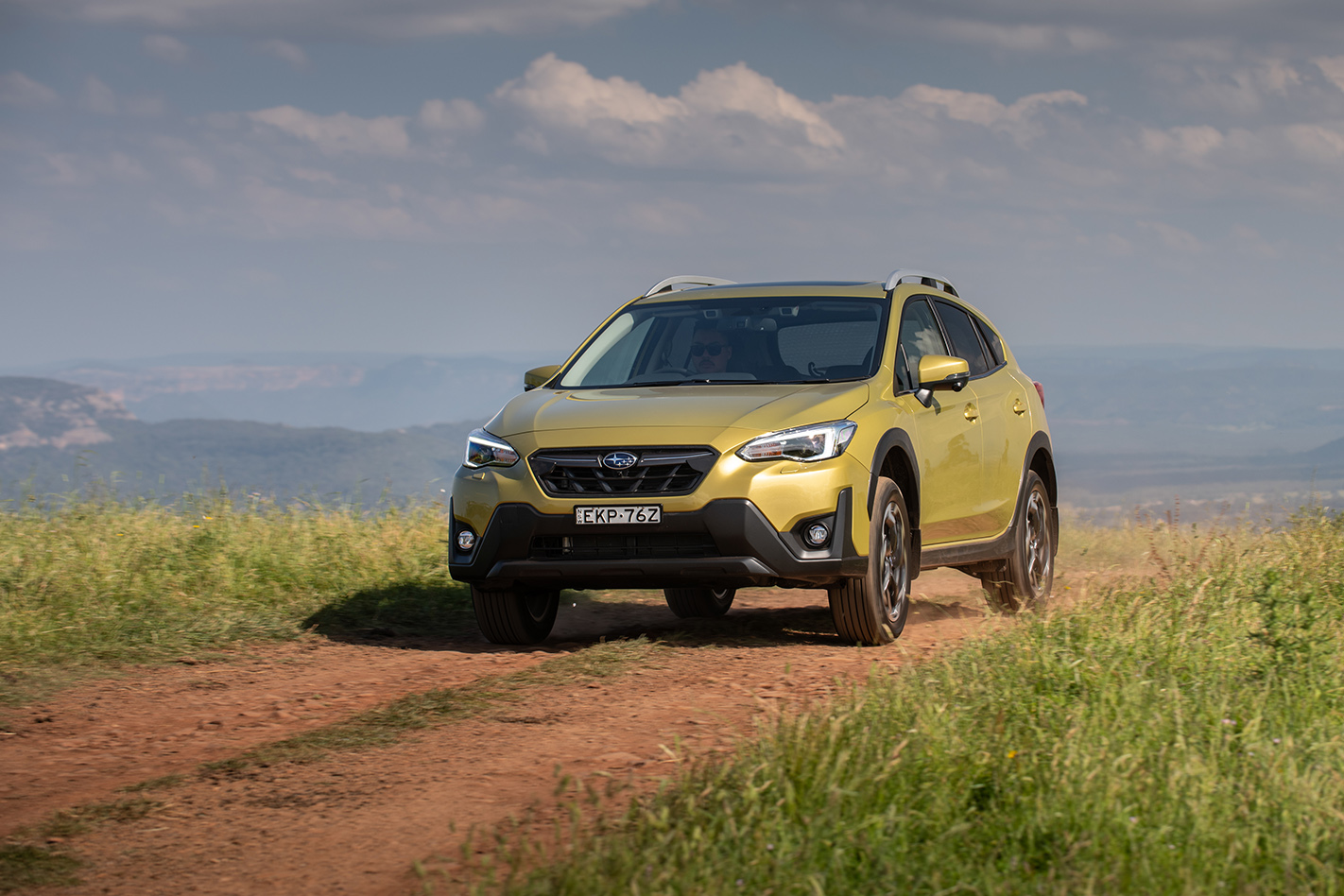
What is the Subaru XV 2.0i-S?
Based on the Subaru Impreza, the XV is one of the few small SUVs that offer a decent off-road capability. It’s well-equipped too, particularly in this 2.0i-S spec, which is the priciest of the non-hybrid variants.
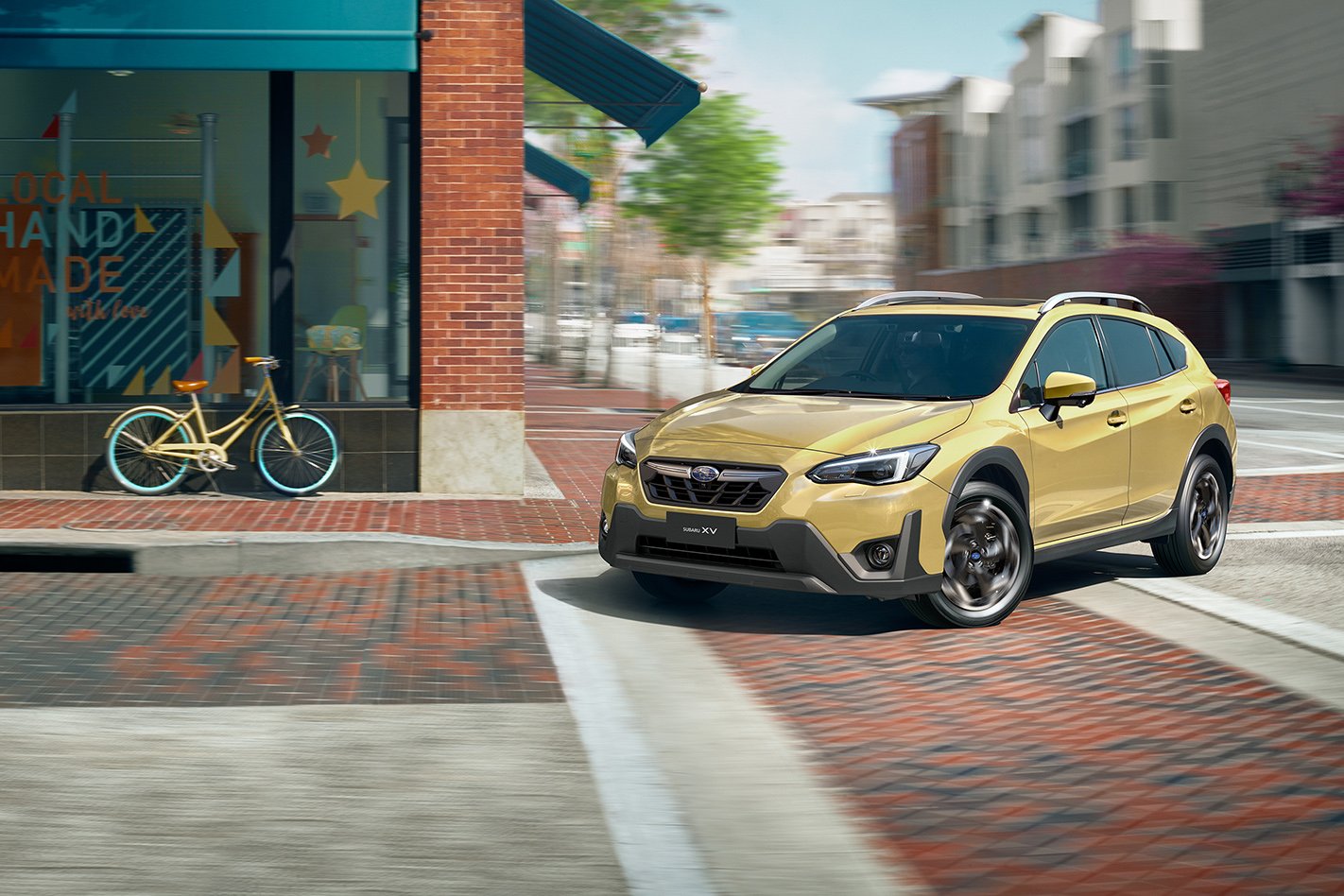
With sharp looks that convey a sense of adventurism, the XV fits the ‘sports utility’ description more than most. Its AWD running gear makes it initially pricier than most of its rivals, which include the Toyota C-HR, Mazda CX-30, Honda HR-V and Hyundai Kona but that doesn’t prevent it from being one of the top five best-sellers in its class.
Subaru recently gave the second-generation XV crossover mid-life update that brought a minor facelift, additional kit and retuned suspension, so we jumped in a striking Plasma Yellow Pearl example to see how it differs from the 2020 version.
We’re driving the highest of four specification grades, the Subaru XV 2.0i-S, which retails for $37,290 with a driveway price of $41,899.
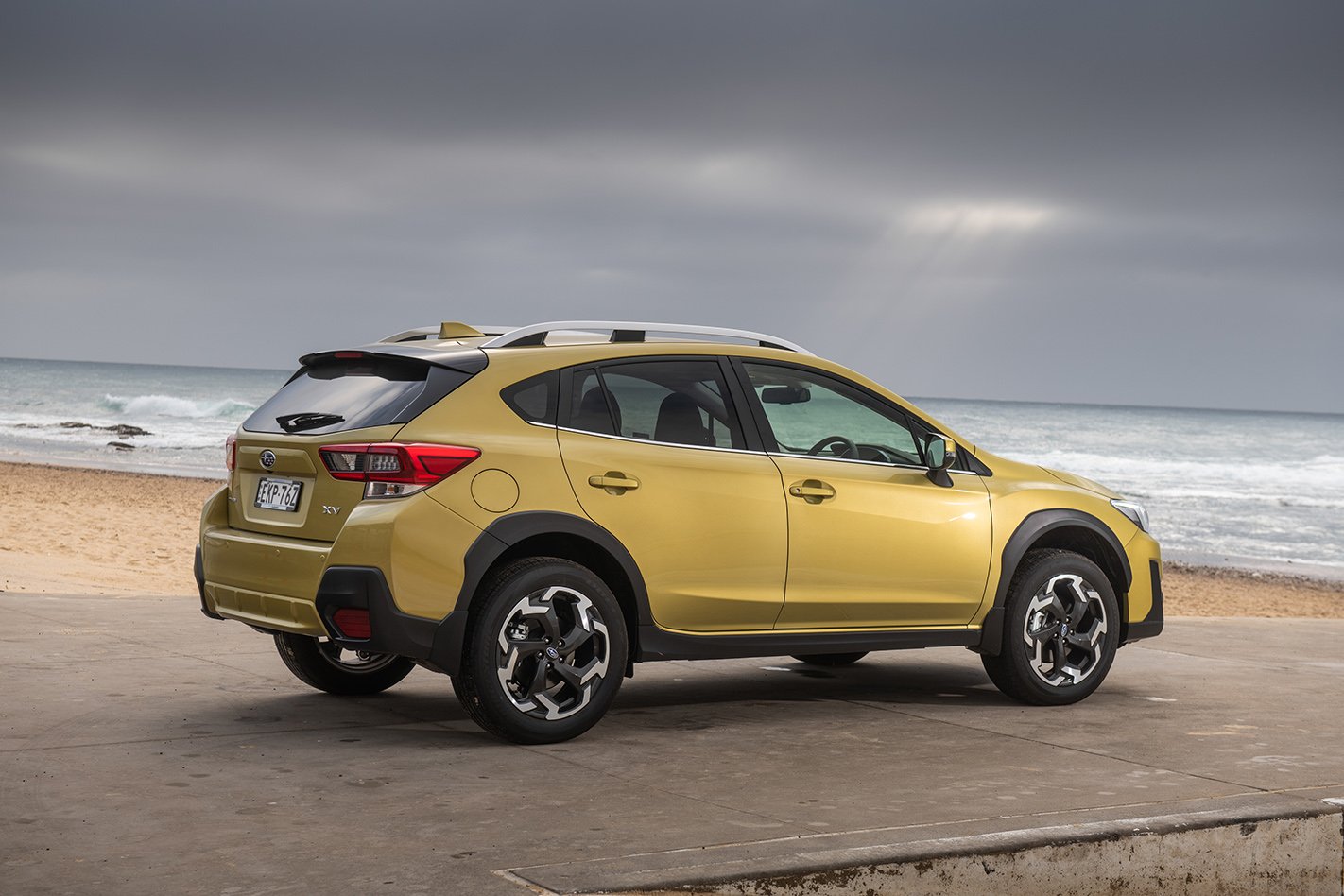
That represents a $7600 premium over the entry-level XV 2.0i, the extra money bringing additional safety features including the Subaru Eyesight semi-autonomous driving system and Vision Assist advanced driver assist system (ADAS) which we’ll detail below.
It also gains a host of extras also found in the mid-spec XV2.0i Premium ($34,590) a bigger 8.0-inch touch screen, dual-zone climate control, powered sunroof and satellite navigation.
Unique upmarket features in this spec include part-leather seat trim, eight-way power-adjustable driver’s seat, heated front seats, auto-dipping passenger side mirror, door-mirror position memory, and 18-inch alloy wheels instead of the standard 17s.
Apart from accessories, there are no extra-cost options for the XV and its price includes any of the nine paint options.
The XV 2.0i-S price and inclusions stack up well similarly against AWD competitors such Toyota CH-R Koba ($37,165), Mazda CX-30 Touring ($38,490) and front-wheel-drive 2.0-litre Hyundai Kona Highlander with the sunroof option ($40,200) that has a few extra bells and whistles including a head-up display and ventilated front seats.
What is the Subaru XV 2.0i-S like to live with?
The XV 2.0i-S comes with everything available in an XV, so you’re not exactly short on creature comforts.
The interior design, which is identical to the Impreza, came through the recent facelift untouched but it still looks sharp and has a quality feel to it with soft-touch surfaces highlighted by attractive contrast-stitching that also adorns the leather-trimmed seats.
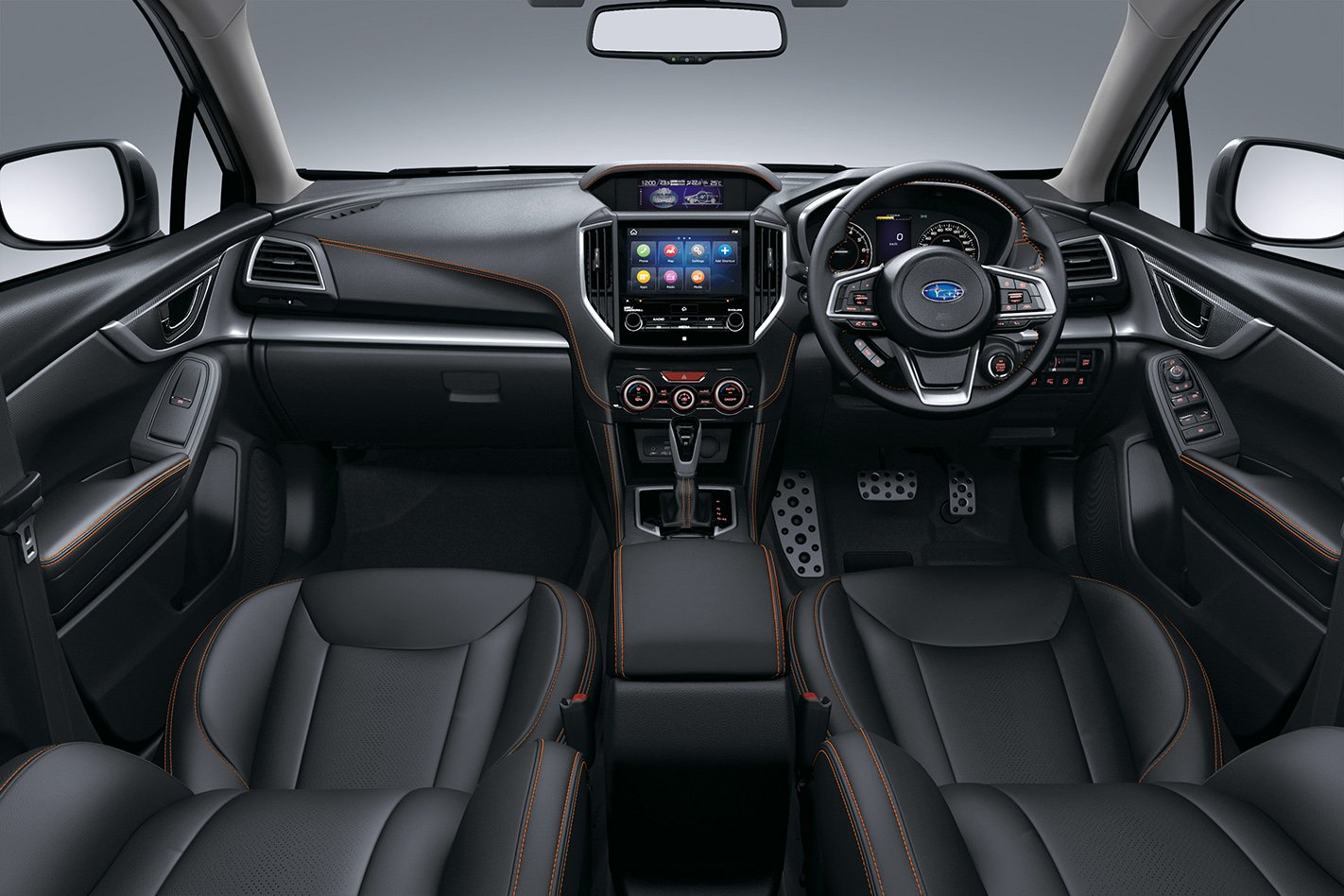
The seats themselves are firm but comfortable, the driver benefitting from eight-way power settings to help find a good driving position and both front seats are heated. That said, I prefer the woven cloth seats in the cheaper versions.
Rear-seat space is great for a small SUV with plenty of leg and shoulder room to keep two big adults quite happy. The stadium-style seating provides good forward vision as well, and there are vents for heating and cooling.
Cabin storage includes a smallish centre console bin with stitched leather-trimmed lid and a front centre tray to hold a phone. There are also two front centre cup holders, two rear cup holders in the fold-down centre armrest, bottle holders in each door bin and map pockets behind the front seats.
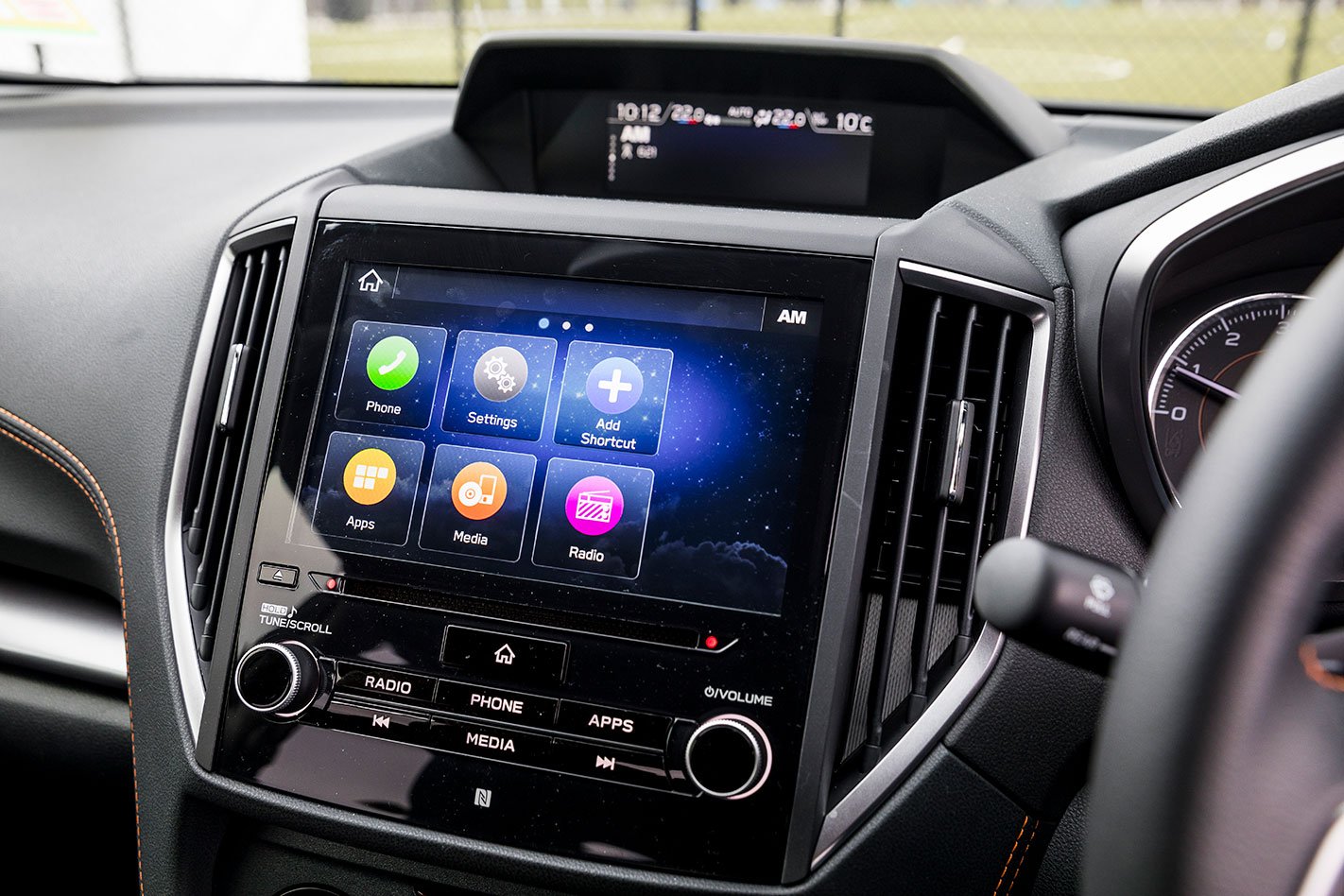
There are two USB charge ports in the centre console that can be used by front and rear occupants plus a couple of USB sockets in the dashboard to sync devices to the infotainment system via Apple CarPlay or Android Auto. Each location also has a 12v/120W power socket.
The XV’s 310-litre boot space is below average for a small SUV, though this is partly due to carrying a full-size spare wheel under the floor, which would come in very handy should you need to replace a tyre while offroad. The rear seatbacks split 60:40 to extend load space up to 765-litres.
Petrol XVs can legally tow a braked trailer weighing up to 1400kg.
All Subaru XVs come with a five-year warranty with no limit on kilometres travelled for private use.
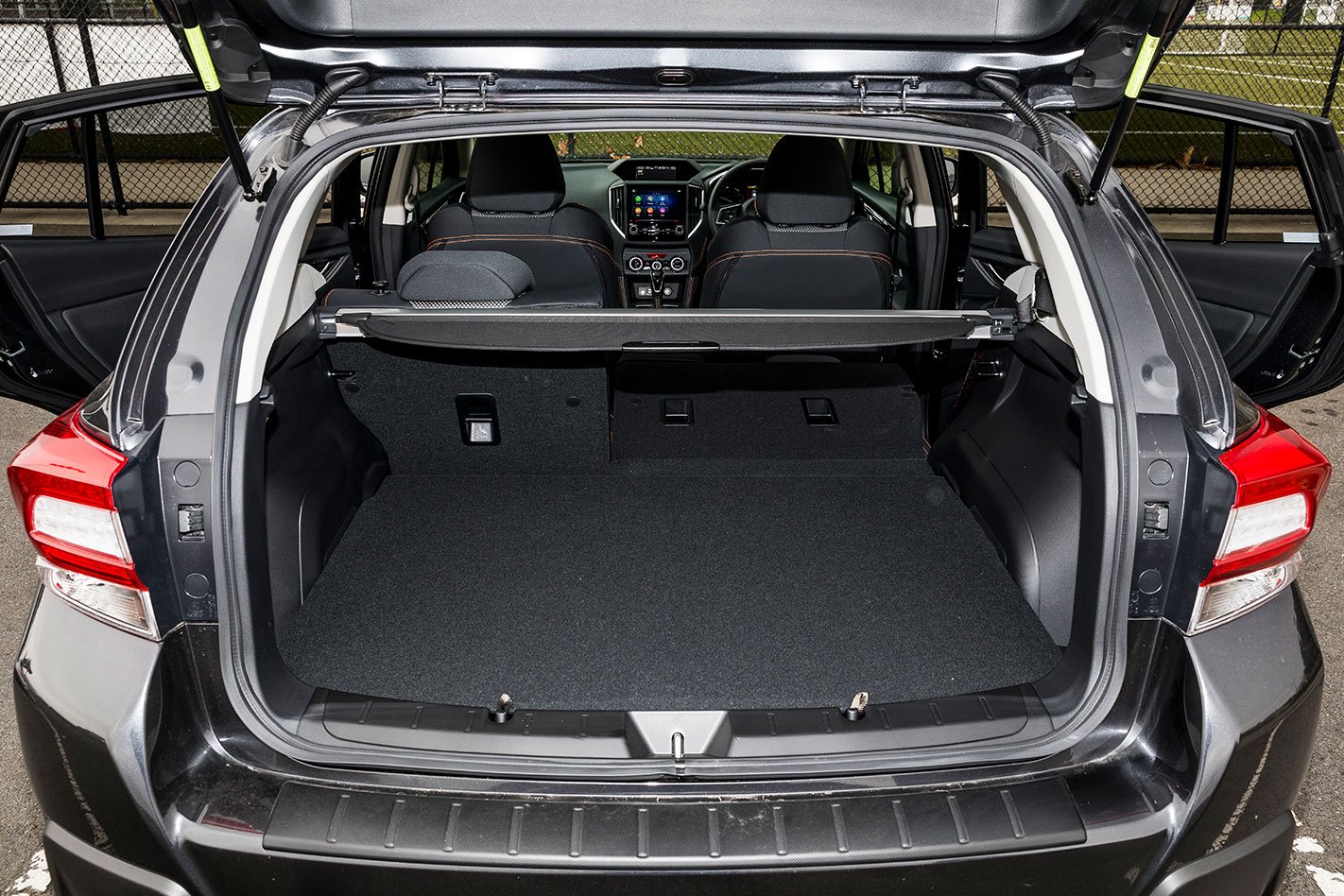
Service intervals are 12 months or 12,500km. Subaru offers capped-price servicing for the first five years, which includes a free check-up after the first month with subsequent annual servicing priced at $341, $591, $347, $797, and $353 respectively.
Fuel economy is a little higher than you’d expect for a car this size. Official fuel consumption is 7.0L/100km and I averaged about 8.5L/100km over seven days with a mix of freeway and urban driving.
The XV only requires RON 91 unleaded petrol when filling the 63-litre fuel tank.
What is the Subaru XV 2.0i-S like to drive?
All petrol XVs are all-wheel-drive and are powered by a 115kW/196Nm 2.0-litre four-cylinder horizontally opposed ‘Boxer’ petrol engine coupled with a CVT auto that’s also shared with the Impreza.
Because the XV weighs a little more than the Impreza, its engine has to work a little harder. You won’t really notice this in most situations but things do get a little loud and sluggish when putting the foot down to overtake or join freeway traffic.
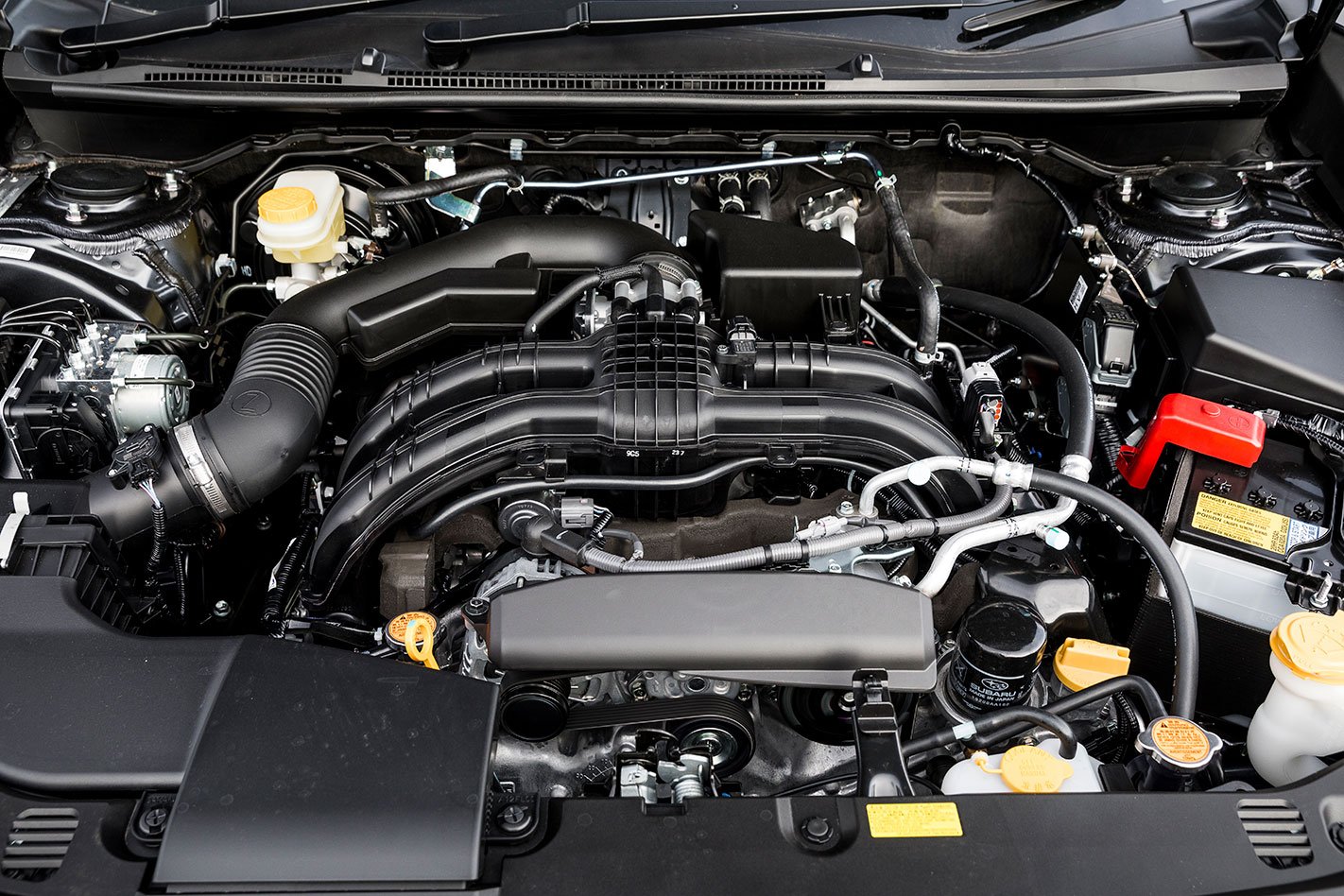
All XVs feature SI-Drive, which is like Sport mode in other cars. Selecting S that changes the rev mapping to delay upshifting for sportier acceleration, while I is an ‘intelligent’ mode that throttles up gradually for smoother and more economical driving.
The XV handles as well as the Impreza despite the jacked-up ride height. One of the most noticeable things about the 2021 update is retuned suspension, which involved tweaked damping force to allow the front suspension to move more smoothly.
The ride feels soft but not spongy and while you feel it bounce over road imperfections, it settles very quickly.
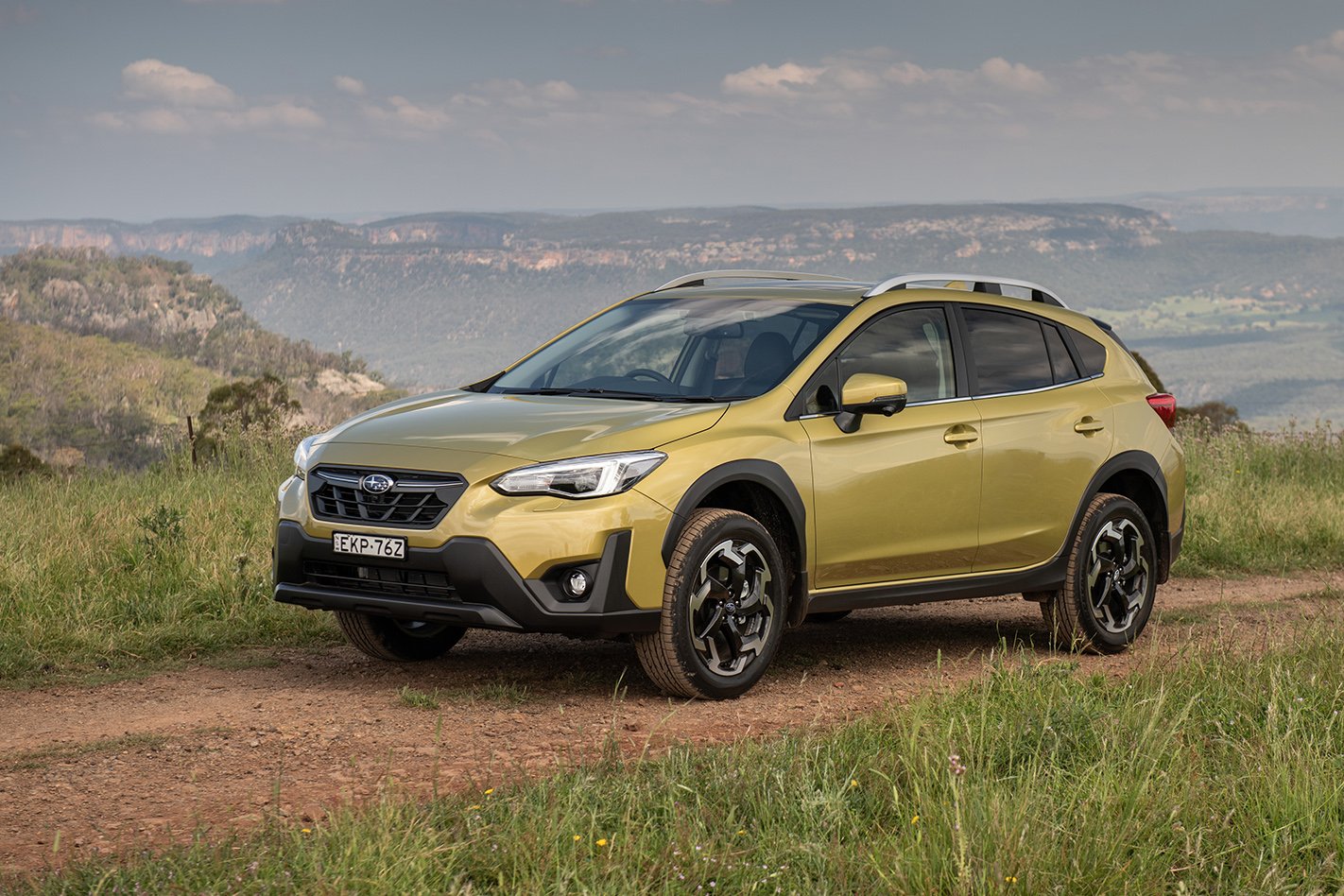
The steering feels a little light but active torque vectoring and the flat-four engine’s low centre of gravity compensates for the higher ride height and keeps the front end pointing where you want when driven with enthusiasm through bends.
But while it’s a great city car, the XV is truly in its element on dirt and gravel tracks, with its 220mm ground clearance, all-wheel-drive system and sharply-tuned electronic stability control keeping things stable on loose surfaces.
Off-road capability is further enhanced in the 2.0i-S with X-Mode dynamic off-road traction control that helps it climb slippery slopes, and has hill descent control that helps you back down without having to touch the brakes.
How safe is the Subaru XV 2.0i-S?
All XVs, except the entry-level 2.0i, is equipped with the third generation of Subaru’s EyeSight active safety suite, which uses stereo cameras to operate autonomous emergency braking with pedestrian detection, lane-keeping assistance and adaptive cruise control.The 2.0i-S improves on this with a Vision Assist suite, which uses radar-based sensors to bring other ADAS functions such as blind-spot monitoring, lane-change assist, rear-cross traffic alert, high-beam assist, and reverse automatic braking.
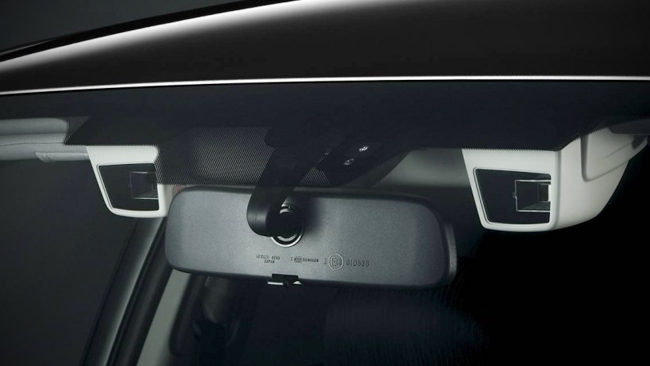
The XV’s compact size makes it easy to park and safely negotiate tight spots. It has good all-round vision, with additional help from a reversing camera, as well as front- and side-view monitors to help you see below the window lines at low speeds.
Passive safety includes anti-lock brakes, stability control, seatbelt reminders for all seats, seatbelt pre-tensioners on the front and outer rear seats.
There are also seven airbags: one apiece ahead of the driver and front passenger; a knee airbag for the driver; an airbag outside each front occupant at chest level to protect from side impacts; and side-curtain airbags extending past both seat rows at head level, protecting occupants front and rear from side impacts.
Child safety includes two rear-seat ISOFIX anchor points, three top tethers and rear-door child locks.
The Subaru XV was awarded a five-star ANCAP safety rating in May 2017.
The Verdict
The XV is still one of the better crossovers, with a ruggedly handsome high-riding hatch aesthetic that other brands haven’t quite managed to emulate. It’s almost alone in its ability to competently handle most road and weather conditions and is very well equipped, especially in this top-spec 2.0i-S guise.
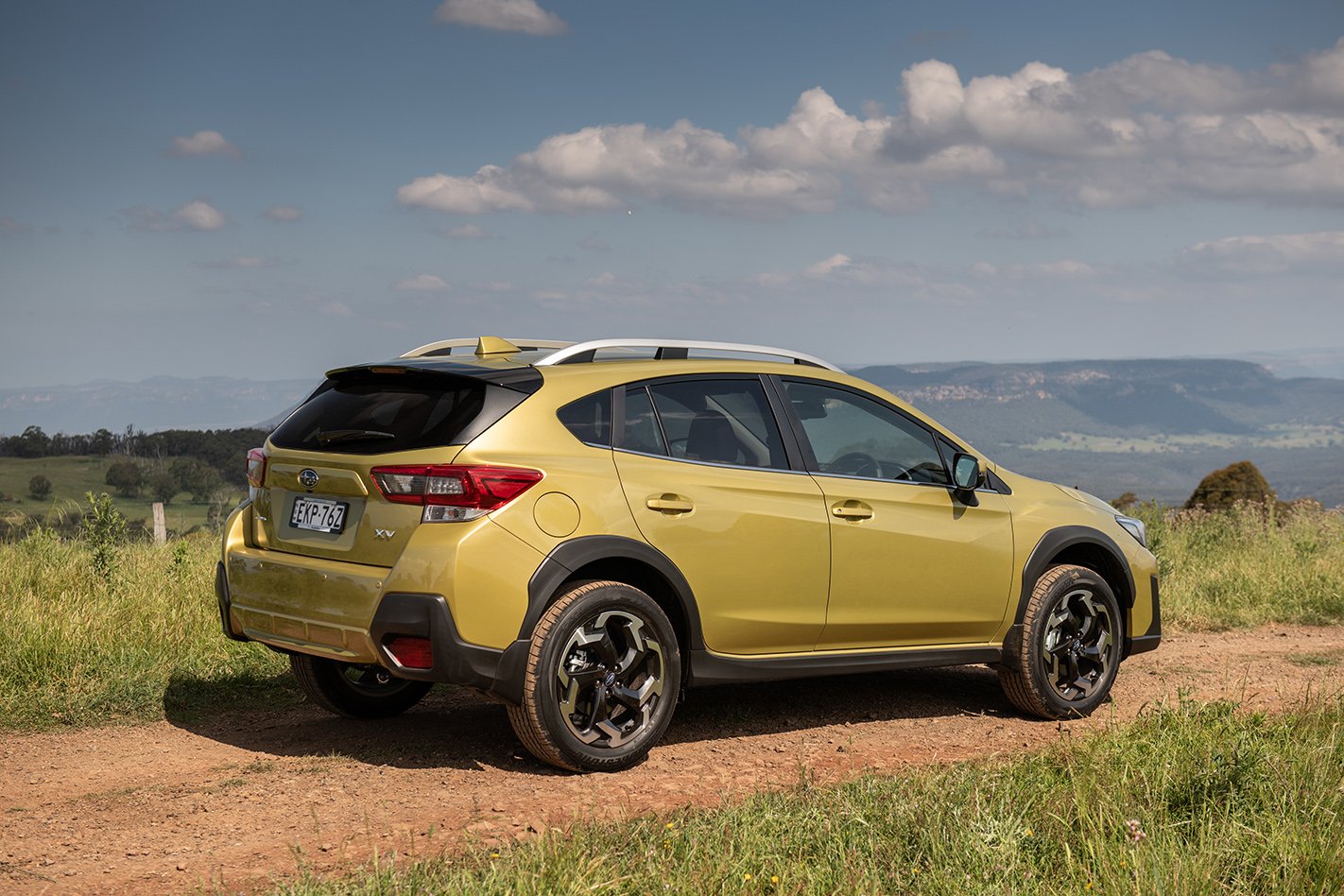
It’s not often we recommend a top-spec variant as there’s usually a more affordable mid-spec version that has everything you actually need, but the 2.0i-S brings some decent kit to the table not found in the other XVs, not least X-Mode, to justify the $2700 over the 2.0i Premium – so while you’re spending more you’re getting better value.
Of course, the S spec is also available with the hybrid powertrain, but I don’t think that does enough in terms of fuel economy and performance to justify spending an additional $3500.
Score: 8/10
Pros: Safety, styling, driveability, versatility Cons: Engine and gearbox lack sparkle, fuel consumption
Specifications
Price: $37,290 Engine 1995cc, 4-cyl, direct injection ‘Boxer’ petrol Max Power 115kW @ 6000rpm Max Torque 196Nm @ 400rpm Drivetrain: AWD Transmission: CVT Fuel consumption: 7.0L/100km combined Wheels: 225/55 R18 98V Weight: 1440kg Dimensions: L 4485mm x W 1800mm x H 1615mm – Wheelbase 2665mm ANCAP Safety: 5 stars


